Biographies and memoirs don't all hail from "Lifestyles of the Rich and Famous" territory. Sure, celebrity biographies are a big part of the genre, and in our winter roundup, we have books on Shakespeare, Dean Martin, musician Elliott Smith and poet E.E. Cummings to fill that bill.
But sometimes it's the lives of the obscure and unknown that compell and captivate us. You've never heard of Nick Flynn, but his agonizing tale of family woes stands alone. Hiner Saleem's memoir of life in a nation torn apart poetically sheds light on a life Westerners would otherwise never see. Although Robin Leach may never do a show about some biography subjects, that may be just fine with them. Their stories touch us still.
Blistering, but unforgettable
Calling your book "Another Bullshit Night In Suck City" (W.W. Norton, $24), as Nick Flynn has, is nothing less than a warning and a dare: If you read it, be ready for the fact that it's not nice.
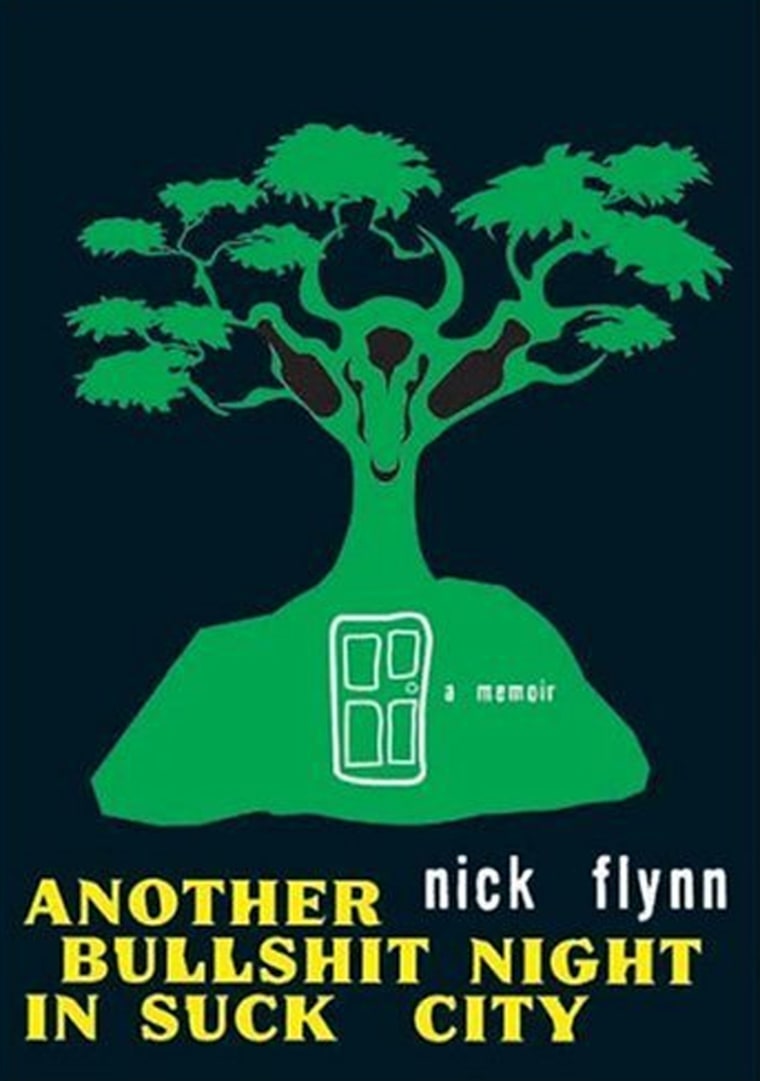
As promised, it's an angry, unsparing book in which Flynn explains how he came to be working in a homeless shelter one night when his estranged father, whom he knew only through letters from federal prison, showed up and wanted a bed.
That story hook suggests a warm tale in which a do-gooder son looks to reach back and redeem his father. This is not that book. Heavily into drugs himself, Flynn recognized the futility of intervening, and speaks of his father's appearances and disappearances without self-indulgence or apology. It is more like a book about an illness or a natural disaster than like a typical family memoir.
There are endless books about bad parents, but few brave enough to confront a son's right to hold to estrangement when the alternative is unrelenting agony. Flynn's writing is bare-knuckled and vivid, and if he doesn't always seem particularly sympathetic, he does appear to be a guy who most likely saved his own life by not allowing his father's troubles to swallow him. —Linda Holmes
For scholars only
"E.E. Cummings was a jerk, but he wrote really interesting poetry." You can either read that sentence 25,000 times, or you can read "E.E. Cummings: A Biography." (Sourcebooks, $30).
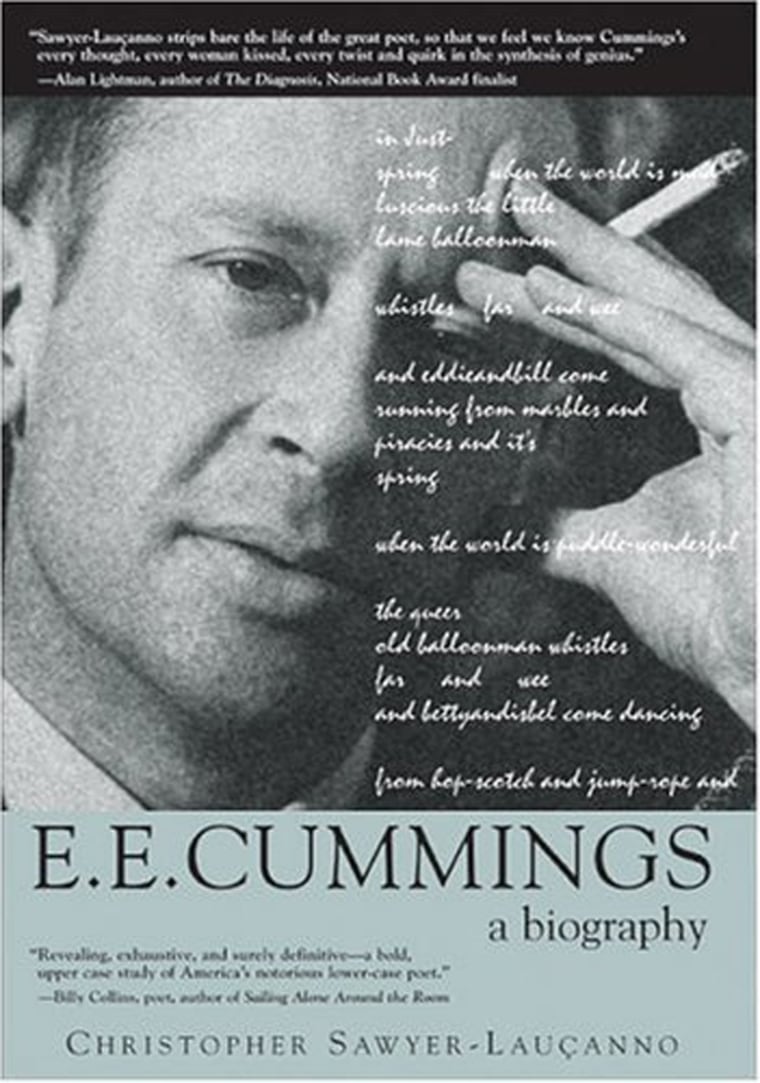
For poetry scholars or impassioned Cummings buffs, this imposing account will satisfy, since it not only dissects everything he ever wrote, but seemingly relays his every social encounter from infancy to death. As a Cummings fact book, it is impressive.
As a story of a life, however, it is surprisingly flat, largely because biographer Christopher Sawyer-Laucanno is such an apparent admirer that he constantly interrupts the story to explain away Cummings doubters as misinformed, to make pronouncements about the historical significance of work that should speak for itself, and especially to explain why it's really not that bad that among Cummings's papers, he found aggressive diatribes about Jews, gays, and women. Oh — or that Cummings plotted to shoot his first wife's second husband.
A more balanced, less fawning account of this complicated, inventive, thoroughly unpleasant man would undoubtedly make a fine book. But unless you need to know what Cummings ate for breakfast in February of 1928, there isn't enough honest examination here to make the book worthwhile. —L.H.
Being and nothingness
Its release coinciding roughly with the anniversary of its subject's death, Benjamin Nugent's "Elliott Smith and the Big Nothing" (Da Capo Press, $24) tries to find new insights into the Oscar-nominated songwriter Smith's life.
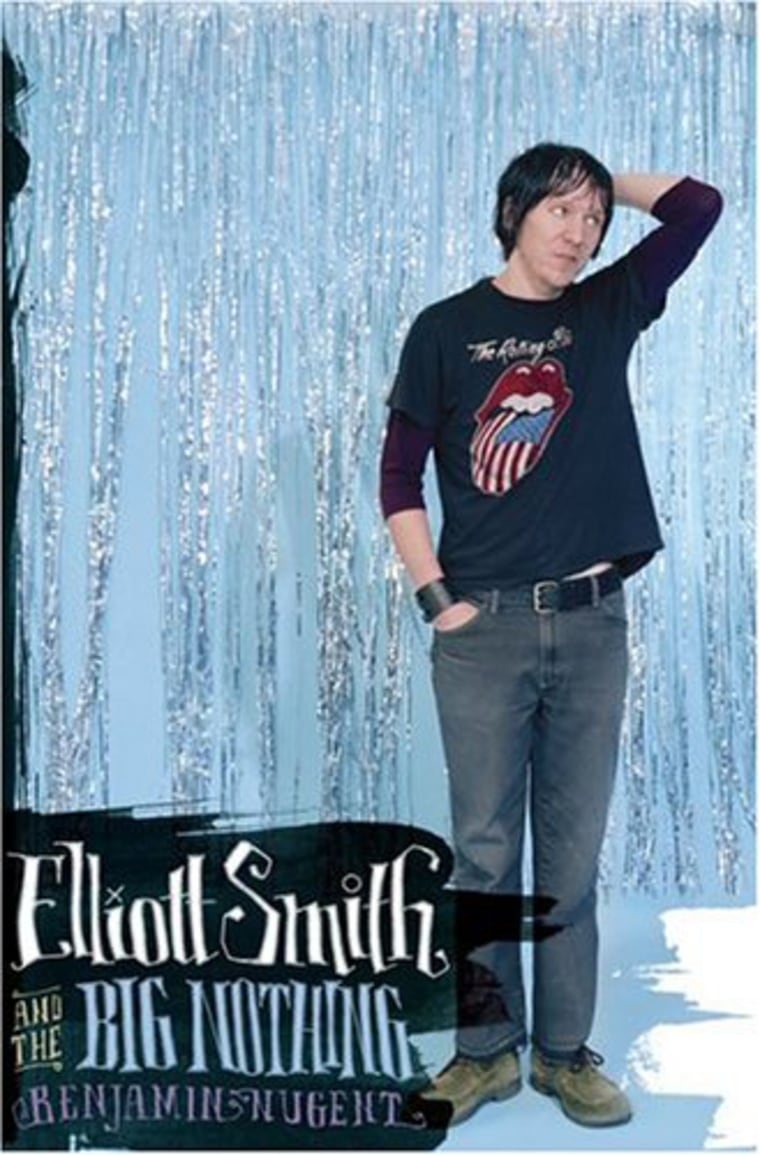
Often, it succeeds. Nugent gets candid observations from his interviewees -- former colleagues, bandmates, and friends who, while fond of Smith, remember him as something of an attention-whore: "I think he liked being a tragic character but he wanted to be around to see the results of that characterization." The quotes are fresh and minimally edited, and Nugent also observes Smith's musicianship in a clear, layperson-friendly way.
The book does suffer from Nugent's lack of access to "the collaborators who knew Smith most intimately for the longest amount of time." The author is forthright about their refusal to speak to him (or to anyone else) about Smith, but he also refers repeatedly to Smith's problems with drugs, then offers little in the way of supporting detail. Smith's substance abuse doesn't flatter him, but it's a central part of his story, and Nugent's vagueness about this facet of his subject, and about Smith's death itself, are coy disappointments in an otherwise entertaining read. —Sarah D. Bunting
Surviving, but at a distanceIt is unsettling to be alienated by a book as openly sympathetic as Barbara Robinette Moss’s “Fierce” (Scribner, $24). As the story opens, Moss’ childhood with her alcoholic father has sent her sliding into a series of bad relationships. She is soon saddled with a couple of rotten husbands, and still committed to the rest of her troubled family, but she’s also blessed with a beloved son and a passion for art. “Fierce” is her survival memoir.
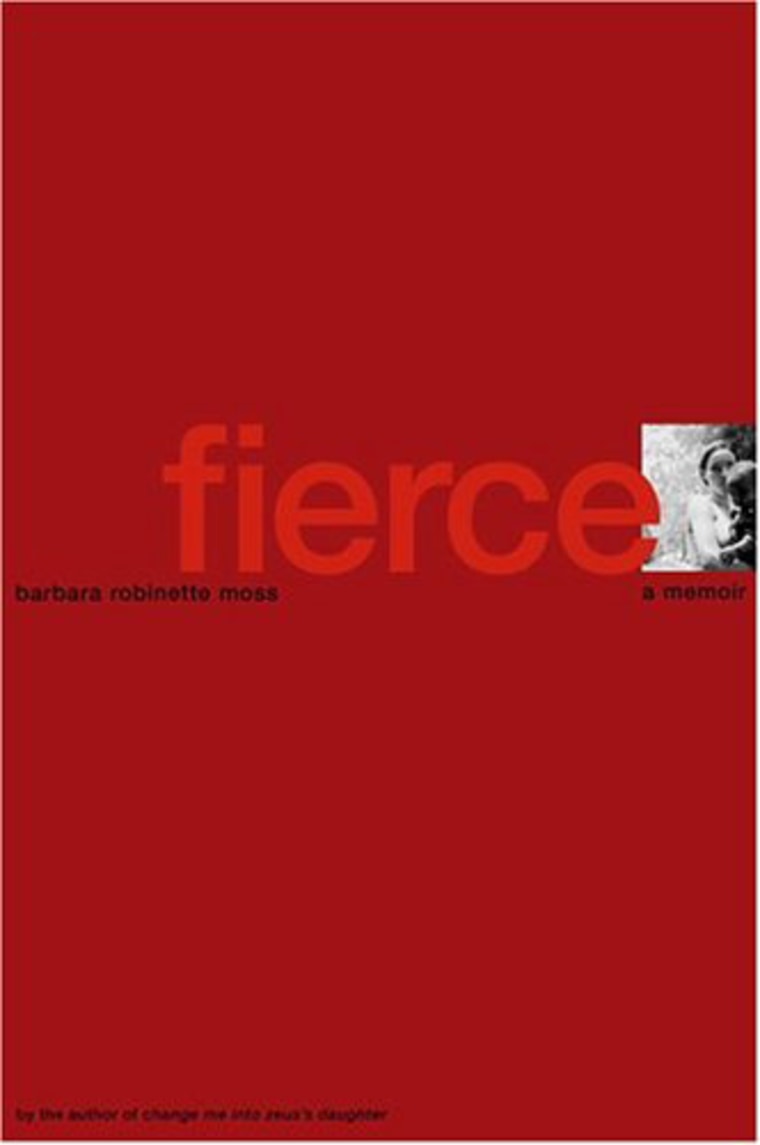
Unfortunately, while Moss draws some things very effectively — her first marriage, her son, and her frustration at being forced onto public assistance — other chapters are surprisingly hollow.
In particular, in talking about her relationship with a schizophrenic artist to whom she had to sneak medication, Moss is strangely impersonal, never offering a satisfying explanation of what drove her toward this man when the results would so obviously be disastrous for her and for the son she loved.
Moss’s life makes a compelling story, but she sometimes seems to be listing her epiphanies rather than shedding light on them. The lessons come abruptly rather than naturally at times, and unfortunately, the book feels like it takes place at a strange, somewhat off-putting distance. —L.H.
Too much fameThere are endless variations on the my-famous-father memoir. Most are mediocre; few are insightful. Many are uneven, and into that category falls "Memories Are Made Of This" (Harmony, $24), by Deana Martin — whose famous father, logically enough, was Dean Martin.
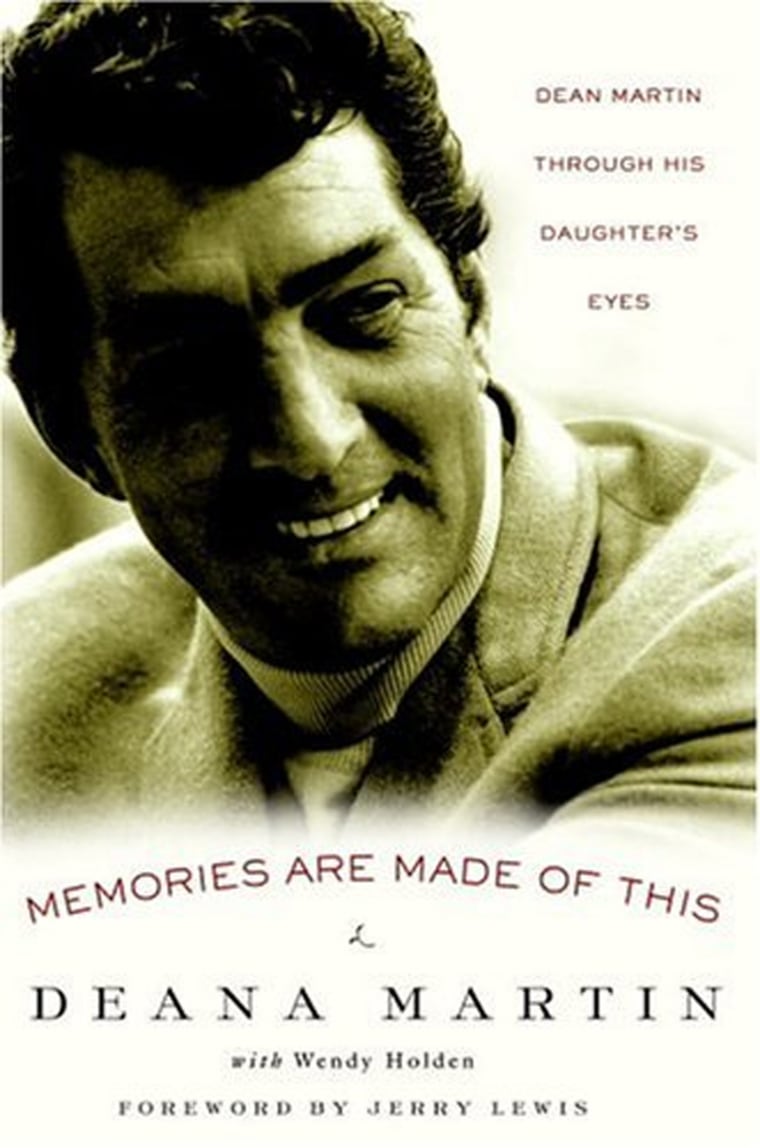
The early chapters, when Deana and her siblings live with their mother after their parents' divorce, are moving, and her memories of Martin are often touching. Unfortunately, as Deana got older, her life became lousy with celebrities, and the book ultimately sags under the weight of interminable name-dropping. (Who cares if Tony Danza, never in the book until this point, attended her father's funeral? Or that Liza Minnelli mixed Deana up with Danny Kaye's daughter Dena?) Everyone who even tangentially enters Deana's life is carefully placed within the world of the famous. Every friend was so-and-so's daughter; every date was such-and-such's son.
Deana writes about her father with great affection, particularly in light of his frankly callous attitude toward her. She is loyal enough that she won't reveal who paid for Martin's nose job, because he made her promise she wouldn't. For Dean Martin fans, the book will be a treasure. For others, it collapses into an endless parade of cameos. —L.H.
War is hellIn the tradition of Primo Levi's "Periodic Table" and Marjane Satrapi's "Persepolis" comes Hiner Saleem's memoir of a childhood in and out of exile, "My Father's Rifle" (Farrar, Straus & Giroux, $17).
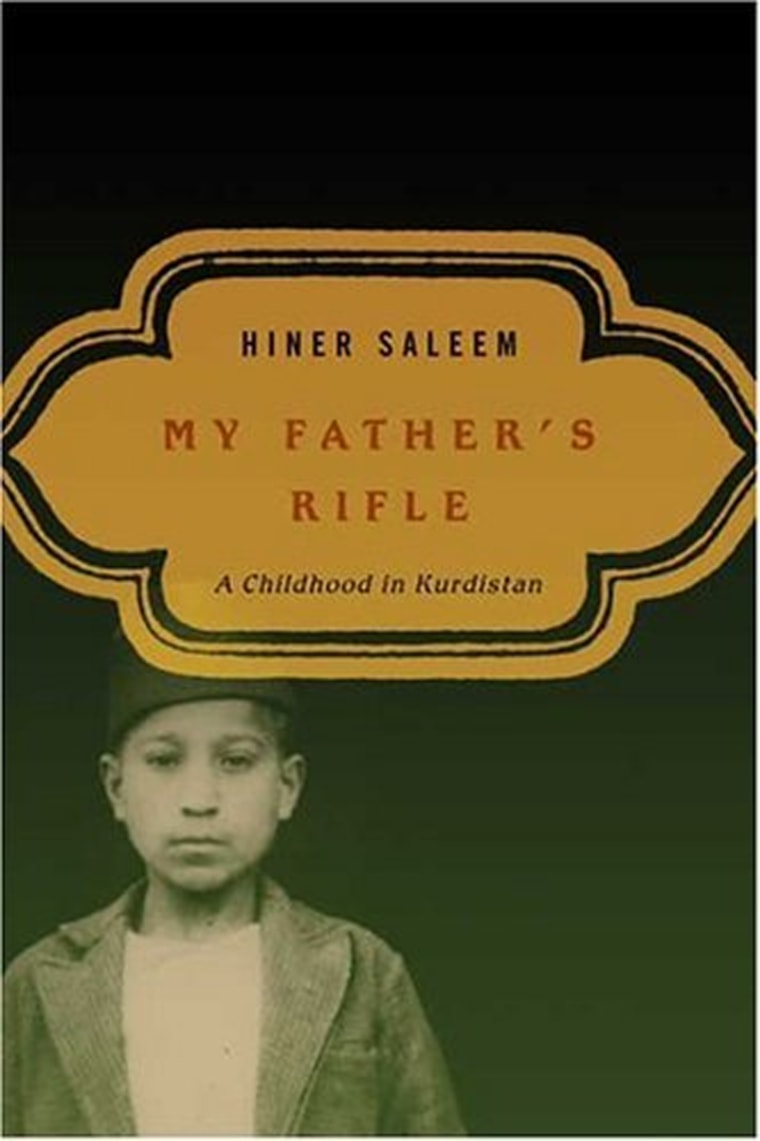
Saleem, who went on to become a filmmaker, calls his narrator "Azad," but it's his own childhood story he tells. Born into a Kurdish family in Iraq, he and his family endure bombings, napalm attacks, and repeated banishments to refugee camps and cave systems.
Saleem's writing captures the poetry in even the tensest moments; when the family is trying to pass muster at a military checkpoint, he pauses to describe his mother, "blind in her left eye, which had a spot in the shape of a white cloud."
Elsewhere, he recounts the misery of his older brother, a freedom fighter and a man without a country, as he gets drunk to relieve boredom and frustration: "He threw up in a saucepan and his wife wiped his mouth." This recitation, like so many in the book, is concise and unsentimental, yet absorbing, and sheds light on the lives of a people that many of us in the West still don't know much about. —S.D.B.
A strange, spooky taleOne of the shocks of adulthood is discovering how flat-out creepy a lot of children's books really are. When Jean Nathan met Dare Wright, the woman who wrote the eerie, odd "Lonely Doll" series Nathan had read as a child, she set out to write the tale of Wright's life, "The Secret Life Of The Lonely Doll: The Search For Dare Wright" (Henry Holt & Co., $25).
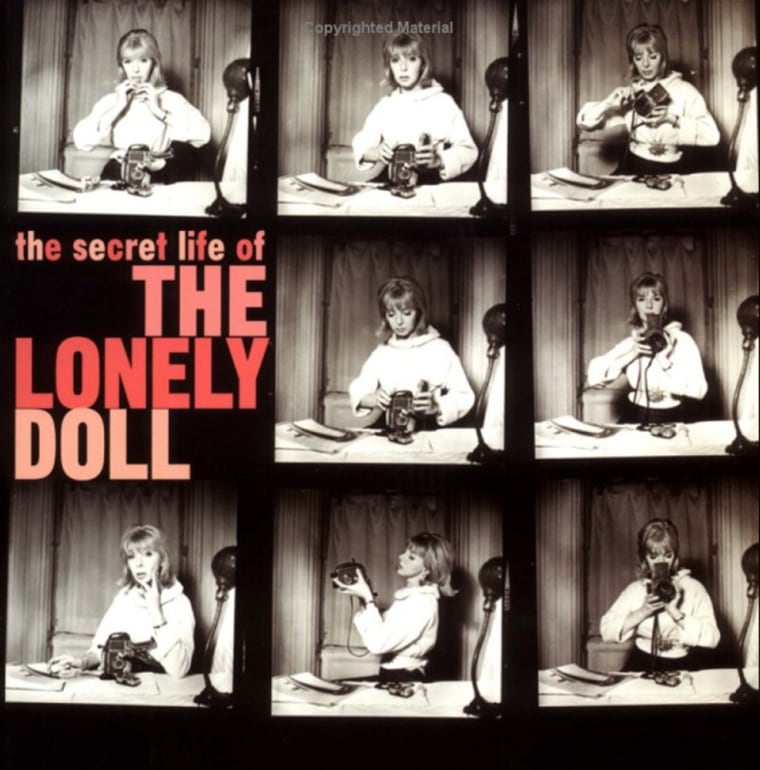
Contrary to its title, the book is not about the literal hunt for Wright, as Nathan found her by looking her up in the phone book. Instead, it studies Wright's isolated childhood, her obsessively entangled relationship with her artist mother, and her inability to form relationships as an adult. The way Wright tried to exorcise her very adult fears through books about a doll and two bears is downright chilling, and Nathan, although she clearly feels sorry for Wright, does well to keep things from becoming too maudlin.
In writing the book, Nathan had access to an enormous stash of Wright's photographs, including her many self-portraits, and the photography is a good accompaniment to a dark and puzzling story. This isn't a book to make you feel good, but it's one that you're likely to remember. —L.H.
To read or not to read
Most of us read him in school, and quote him daily without realizing it — Shakespeare's work permeates our culture, but Shakespeare the man is something of a cipher. Stephen Greenblatt uses the famous work to try to illuminate the mysterious man himself in "Will in the World: How Shakespeare Became Shakespeare" (W.W. Norton, $27).
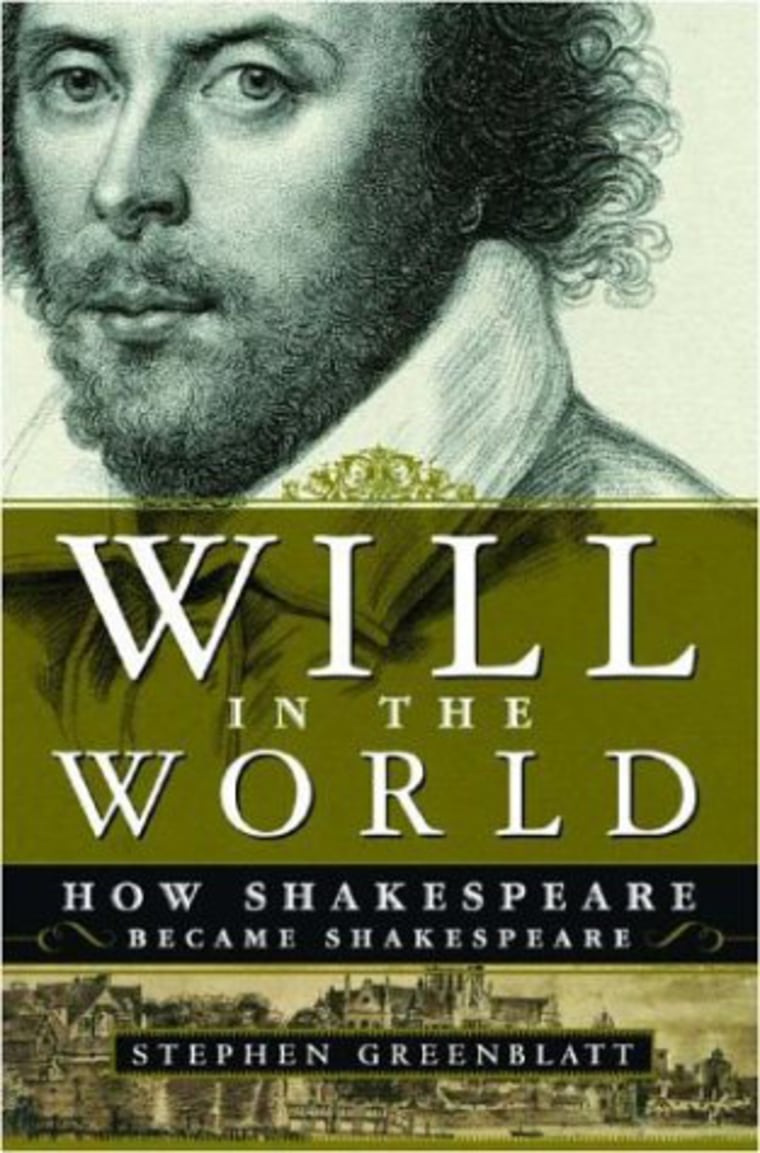
Working backwards, Greenblatt employs a close reading of Shakespeare's writing (primarily the plays) and puts that alongside contemporary events, both historical and personal, that might have influenced the Bard — why Shakespeare told the stories he did, the way he did, and what those stories might tell us about the life of the man who imagined them.
That close reading is compelling, especially Greenblatt's discussions of Falstaff's origins (Hal's dismissal of Falstaff in "Henry IV, Part 2" may actually be Shakespeare's repudiation of his own father) and the sonnet sequences, but his theorizing is just that — he can't furnish conclusive proof, and the connections he draws seem tenuous at times.
Greenblatt is forthright on that point, though, and for the most part his speculation lends new depth to by-now-familiar scenes and couplets. After an analysis of the Macbeths' marriage — one of the few depicted by Shakespeare in which husband and wife have any long-term emotional knowledge of one another — Greenblatt observes that "it is difficult not to read [Shakespeare's works] in the context of his decision to live for most of a long marriage away from his wife."
While the historical background Greenblatt provides may not have decisively shaped Shakespeare's work, it's an interesting perspective, as well as an informative overview of English cultural life in the late sixteenth and early seventeenth centuries. —S.D.B.
Linda Holmes is a writer in Bloomington, Minn. Sarah D. Bunting is a writer in Brooklyn.